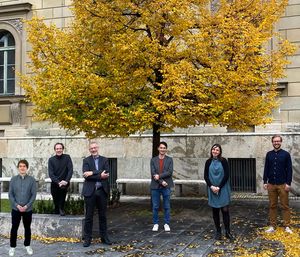The controversial Directive 2019/790 on Copyright and Related Rights in the Digital Single Market caused severe protests prior to its adoption, particularly in Germany. It was, above all, today’s Article 17 on the responsibility of online content-sharing service providers that was harshly criticized. In the context of the vote by the EU Council on April 15, 2019, the German government felt compelled to issue a protocol declaration according to which the controversial upload filters should be largely dispensed within the national implementation of the Directive.
The Member States must now transpose this EU Directive into national law by June 7, 2021. In October 2020, the Federal Ministry of Justice and Consumer Protection (BMJV) presented a draft bill for an "Act to adapt copyright law to the requirements of the digital single market", which has not yet been coordinated with other ministries. Above all, it was eagerly awaited how the Federal Government's protocol declaration can be actually implemented.
The copyright responsibility of online content-sharing service providers in Germany is to be regulated in future by an independent act, the Copyright Service Provider Act (UrhDaG). According to this, online content-sharing service providers are - as required by the Directive - generally responsible for the content uploaded by their users. However, they can exempt themselves from their liability by complying with specifically stipulated duties of care. The UrhDaG is intended to specify what these obligations are.
New act regulates copyright responsibility
The Max Planck Institute for Innovation and Competition accompanied the adaptation of copyright law to the requirements of the digital age already with regard to the EU Directive. A project group commented in great detail on the drafts of the EU Commission. The Institute now also issued a position paper on the current draft bill. The focus of this paper lies on the UrhDaG.
In principle, the six-person project group welcomes the establishment of the UrhDaG. The draft adopted "with innovative proposals a path that is fundamentally suitable for achieving the necessary balance of copyright interests in the distribution of copyright content via online platforms," the position paper states. On some points, however, the authors provide suggestions for the further legislative process, especially with regard to the planned licensing mechanism (Sec. 4 UrhDaG), the obligation to pay remuneration for legally permitted uses (Sec. 5 UrhDaG) and the consideration of minor uses (Sec. 6 UrhDaG).
Overview of the suggestions in the position paper
According to the project group, Section 4 UrhDaG is likely to have a positive effect on the licensing market as it creates a regulation that sensibly shapes the requirements for action of online content-sharing service providers and rights holders in the licensing process. However, the position paper suggests some improvements and specifications in order to avoid legal uncertainties in the case of licensing through individual rights holders.
The project group welcomes the fact that in Section 5 UrhDaG the draft bill clarifies the applicability of the copyright limitations for the regulatory area of the UrhDaG in order to capture as many forms of "user generated content" as possible and make them legally accessible online. It expresses criticism, however, that online content-sharing service providers should be subject to an obligation to pay remuneration exclusively for the use of works for the purpose of a pastiche (Sec. 7(2) UrhDaG). "In view of the functional logic of the UrhDaG and the special interests of online content-sharing service providers, rights holders and users, as well as expected problems of demarcation, all uses pursuant to Section 5 UrhDaG should be remunerated by the online content-sharing service providers," the position paper states.
The planned facilitation of minor uses according to Section 6 UrhDaG is also appreciated by the position paper in principle. However, since there are doubts regarding the conformity of the concrete design with EU law, it is suggested that the objective should be implemented by means of a different legislative solution. The project group makes specific proposals for this.
Read the full text of the Institute's position paper (in German) here
The e-book "Modernisation of the EU Copyright Rules", edited by Reto M. Hilty and Valentina Mocson, can be found here

